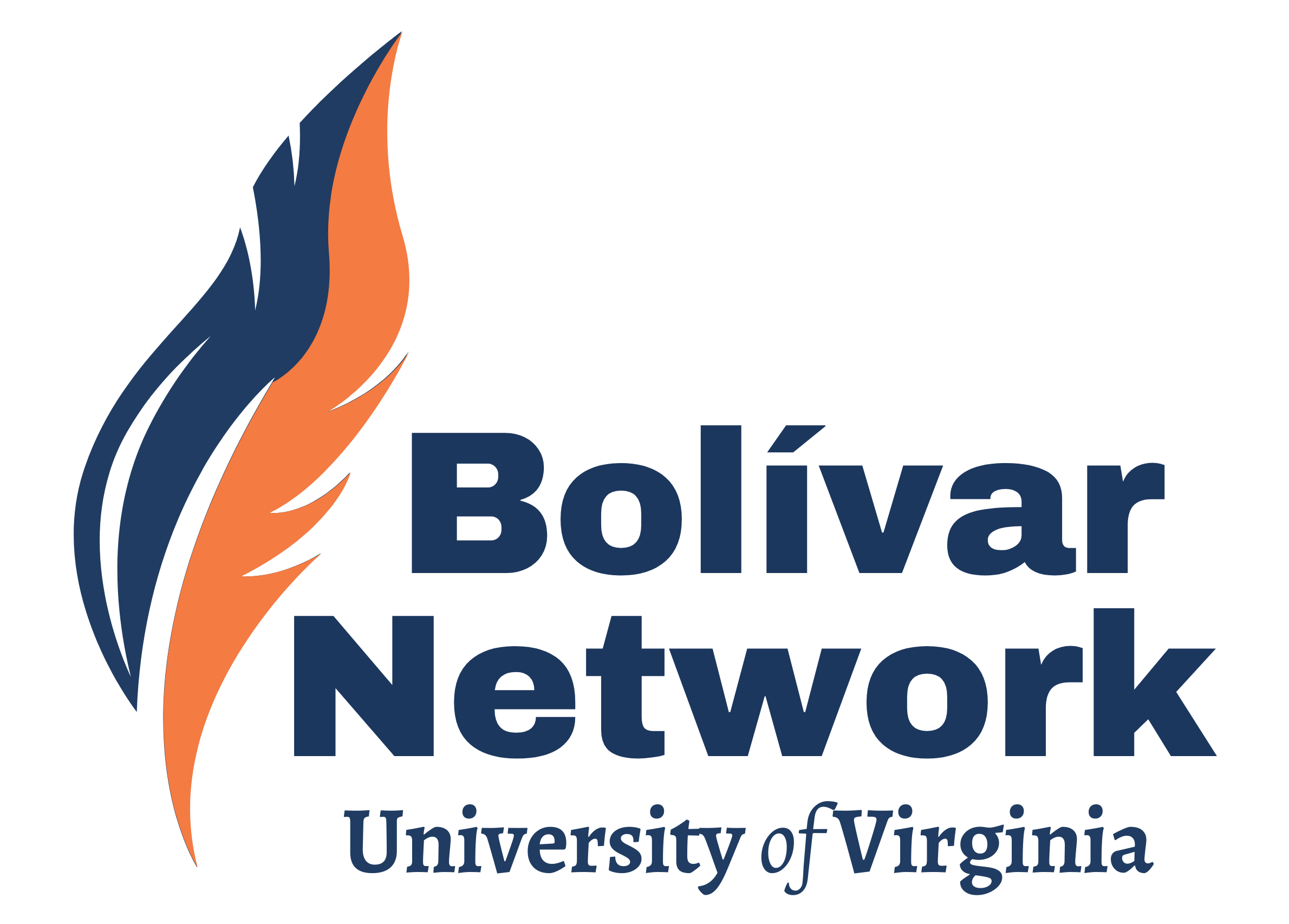La Bolívar Network (BN) was founded in 1997 by Alexandra Alvarez Minoff (CLAS ’00) and was inspired by was inspired by The Ridley Scholarship Program.
Alexandra attended ‘Leadership 2000’ where she studied the feasibility of creating such a network. She worked closely with Alumni Hall, where the idea was spearheaded to go through yearbooks to spot out Latino alumni since University record-keeping did not have this data recorded. The first Board Meeting was held that October 1997, Alexandra Minoff was a second-year student, but had the vision of an upperclassmen. Alexandra also served as president of La Sociedad Hispanica, where Gina Marie Flores (CLAS ’00) served as Vice President and Claudia Knez (CLAS ’00) served as Secretary. Alexandra is the visionary of the BN Network though La Sociedad Hispanica, but would not have been able to make it successful without the dedication and ownership Gina and Claudia display through La Bolivar Network’s early years.
Gina Marie Flores went onto serve as Chairman of Board for many of La Bolívar Network’s early years. Alexandra credits the efforts of Gina and Hernando Herrera, former Chairman (CLAS ’89) for being instrumental in building her vision into reality.
The Bolivar Network’s name was inspired by the Bolívar Family. Similar to when UVA named the Spanish House in honor of alumnus Fernando Bolívar, nephew and adopted son of South American Hero, Simon Bolívar.
Fernando Bolívar was born in 1810 in Caracas, Venezuela’s capital and was one of the first students at UVA, coming here to study in 1827 because he and his uncle were both admirers of Jefferson and his ideas about freedom and democracy. Simon Bolívar, “the Liberator,” helped create independent democratic nations in South America. Simon assisted Venezuela, Peru, Ecuador, Bolivia, and Colombia to establish their independence from Spain. When Fernando’s father was killed in the fighting, Simon Bolívar, who had no children of his own, adopted his nephew and sent him to the United States to be educated.
The UVA Board resolution cites Fernando Bolívar as “an early exemplar of the strong and historic ties between the University and Latino America” and the goal of La Bolívar Network is to grow and strengthen this bond by enriching students and alumni experiences, careers and lives.
Fernando Bolívar came to the United States in 1822 to attend Germantown Academy in Germantown, PA and after five years considered going to West Point but decided on the newly opened University of Virginia because he admired Jefferson. Jefferson died the summer before the young Bolívar came to register. Simon Bolívar sent a letter to the University faculty detailing how he wanted Fernando to be educated. A typed copy of the letter, along with other material relating to Bolívar’s days here, are in Alderman’s Library’s manuscript collection. Among other aims, Fernando’s education was to include modern languages, “not neglecting his own,” his uncle wrote.
Portraits of Fernando and Simon Bolívar, gifts to the University from the Venezuelan government in the 1940s, can be found in the Casa Bolívar at 1408 Jefferson Park Ave. Alderman collection is a copy of Fernando Bolivar’s memoir, “Recuerdos y Reminiscencias,” published under the pseudonym “Rivolba” (an anagram of Bolívar) in Paris in 1873. In it he describes his days at UVA: “The buildings were exceedingly beautiful and very well arranged. . . On the ‘Lawn’ or principal plaza, which occupied the top of a low ridge, there were about 12 pavilions. . . There was no wall around the university grounds to keep the students in . . .” He notes that his professors were “very eminent men secured by Jefferson for the express purpose of teaching at his university.”
In a recent novel, “The General in His Labyrinth,” Gabriel Garcia Marquez, who was awarded the Nobel Prize for Literature in 1982, writes a historically based novel of Simon Bolívar. In the novel, it notes Fernando Bolívar had been a student in Charlottesville at the University founded by Thomas Jefferson.
For more information about the history and relationship between Thomas Jefferson and the Bolívar family, check out this talk “Thomas Jefferson, Simón and Fernando Bolívar” researched and given by Gustavo Pellón, Professor of Spanish and Comparative Literature, University of Virginia on Saturday October 7, 2017.
For more history about the Bolívar Network and the Hispanic/Latinx community at UVA please visit UVA’S Hispanic and Latinx Oral History website.
Chairs of the Bolívar Network
Alexandra Minoff ’00 1997-1998
Pedro Medina ’82 1989-1999
Alexandra Arriaga ’87 1999-2001
Gina Flores ’00 2001-2003
Carlos Soles ’95 2003-2007
Faviola Rubio ’05 2007-2008
Hernando Herrera ’89 2008-2011
Chris Rodriguez ’05 2011-2013
Chris Matthews ’00 2013-2017
Luis Maes ’00 2017-2020
Claudia Quintero ’11 2017-present

